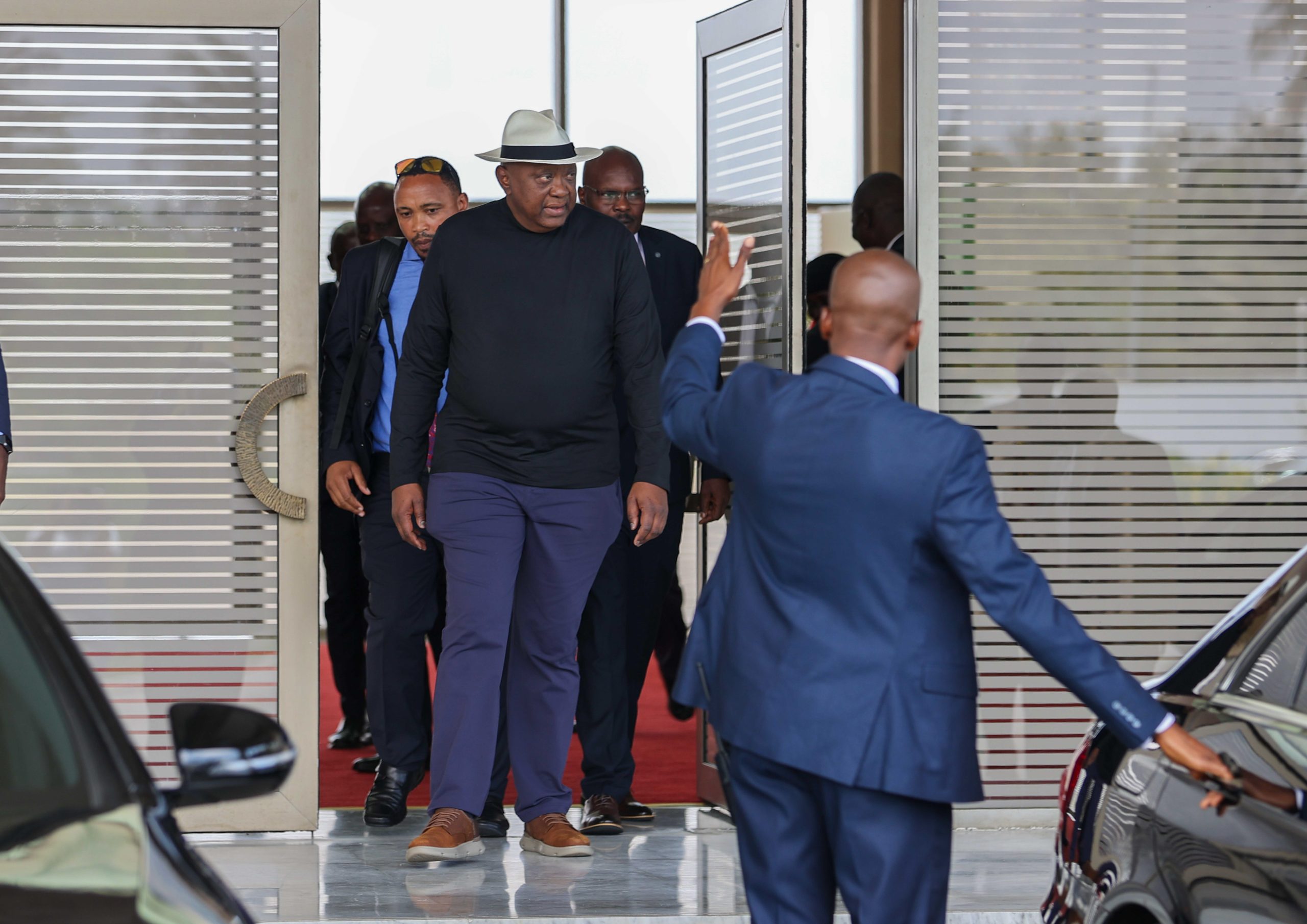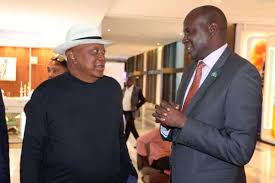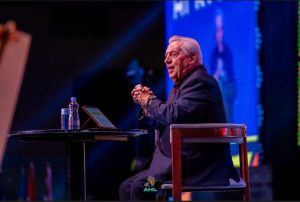
Uhuru Kenyatta
Former Kenyan President Uhuru Kenyatta has made a striking public return, dispelling months of speculation about his health.
After keeping a low profile since witnessed Riots, Kenyatta appeared in Abidjan, Côte d’Ivoire, to attend the 15th High-Level Retreat on the Promotion of Peace, Security, and Stability in Africa. This reappearance quashes rumors surrounding his health status. Hence, reaffirming his presence as a key figure in African diplomacy and peacekeeping.
Uhuru Kenyatta’s Reappearance in Abidjan
Kenyatta’s attendance at the retreat in Abidjan on October 20th marks his first significant public engagement in some months. Organized by the African Union, the annual event gathers prominent African leaders, policy advisors, and diplomats to deliberate on pressing security and stability issues across the continent. In his appearance, Kenyatta appeared fit and in high spirits, interacting actively with leaders and advocates.
The former president’s participation is expected to highlight his dedication to African peace-building efforts, a role he embraced even before his term ended. In fact, Kenyatta has been instrumental in negotiating peace agreements across Africa. Notably in the troubled Tigray region of Ethiopia, where he helped facilitate an historic peace agreement in late 2022.
Uhuru Kenyatta Health Concerns
Rumors of Uhuru Kenyatta’s health have circulated for some months, fueled by his lack of public appearances and the heightened online chatter surrounding his wellbeing. Some reports alleged that he was receiving medical treatment abroad, while others speculated about a possible underlying health condition. However, his energetic and healthy presence in Abidjan might dispelled such rumors. Therefore, calming anxieties among supporters and refuting claims of ill health. However, some netizens still questioned his health claiming it has deteriorated.

The former leader’s vitality and eagerness to address issues of peace and security have reassured his political allies and supporters alike, reinforcing his role as a respected figure in African leadership.
Political Tensions and Conspiracy Theories
Since his retirement, Kenyatta’s political influence has not gone unchallenged. Speculations about his health were further compounded by recent conspiracy theories that alleged plots against his life. These rumors have surged online, with search trends on topics like “plot to assassinate Uhuru Kenyatta” and “the plot to assassinate Uhuru” gaining traction on social media.
The surge of these conspiracy theories seems to reflect underlying political tensions in Kenya, where Kenyatta’s successors, particularly Yet to be conferred Deputy President Kithure Kindiki, have embarked on an aggressive agenda to cement their administration. While there is no confirmed evidence of these plots, the widespread online interest suggests a climate of skepticism and political division in Kenya. Especially, with Dp Rigathi Gachagua recent claims on his assassinations’ attempts.
Furthermore, tensions are heightened by the current administration’s stance toward Kenyatta’s tenure. Since President William Ruto’s election, there has been a shift in the country’s political landscape, and some of Kenyatta’s close allies have found themselves sidelined. Despite this, Kenyatta’s reemergence on the global stage emphasizes his continued influence in African diplomacy.
Uhuru Kenyatta’s Legacy in African Diplomacy
Since his departure from office, Kenyatta has focused on African unity and peace-building, leveraging his political influence to mediate conflicts. He remains a key figure within the African Union and other regional entities, including the East African Community (EAC) and the Intergovernmental Authority on Development (IGAD). His work as an envoy to Ethiopia and the Democratic Republic of the Congo has helped de-escalate regional conflicts and protect vulnerable communities from the impacts of war.
Kenyatta’s return to the public eye is more than just a personal resurgence; it’s a reaffirmation of his commitment to African stability. His influence in conflict resolution has garnered respect from many African leaders, including President Paul Biya of Cameroon and Ethiopian Prime Minister Abiy Ahmed, both of whom are actively working to stabilize their own countries.
Kenyans React to Kenyatta’s Public Return
Social media platforms erupted with reactions following Kenyatta’s appearance in Abidjan, with hashtags like #UhuruReturns and #FitAsAFiddle trending in Kenya. Many Kenyans expressed relief and pride, praising the former president’s commitment to peace-building and regional stability. The visit to Abidjan is to be celebrated not only as a significant diplomatic engagement but as a testament to Kenyatta’s enduring influence and proven Uhuru Kenyatta health wellbeing.
Some Kenyans, however, remain critical. Notably, questioning whether his presence on the African stage will impact domestic political dynamics or affect his successors’ vision for Kenya. Kenyatta’s role remains strictly diplomatic, avoiding interference in local politics and focusing on broader issues affecting the continent.
A Resilient Statesman
Uhuru Kenyatta’s recent public engagement in Abidjan has for now silenced speculations about his health. Appearing vibrant and committed, he reinforced his legacy as a peace advocate and African statesman. His reappearance signals his enduring commitment to Africa. Thus, casting aside health rumors and underscoring his dedication to building a united, peaceful continent. As Kenyans and Africans alike rally behind his leadership, Uhuru Kenyatta stands firm as a beacon of resilience and unity in African diplomacy.





